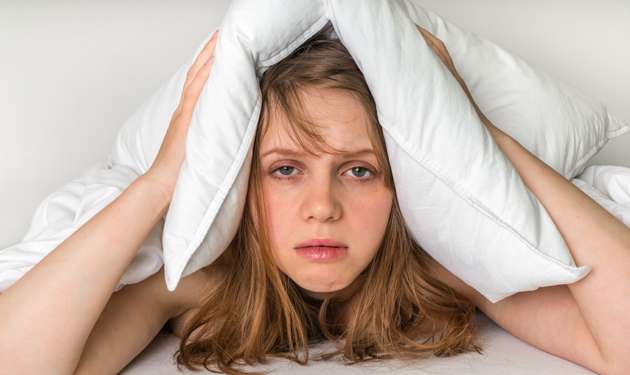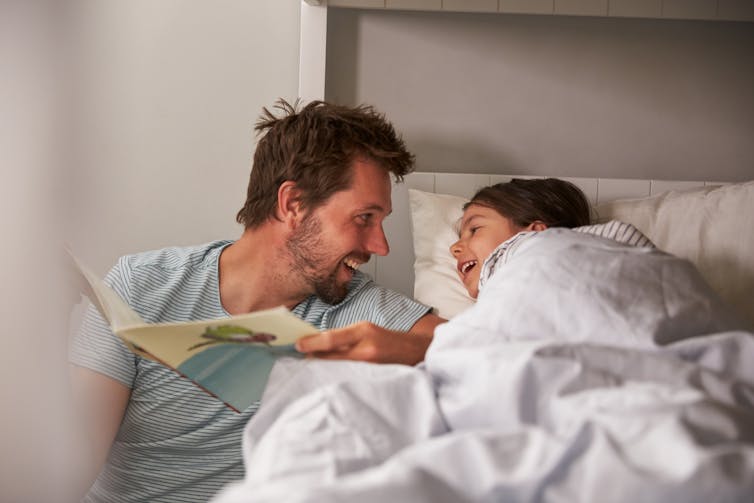
October is the time we get to enjoy the beauty of Spring. Warmer weather and longer days, and most of us get to enjoy that extra hour with daylight savings (sorry Queensland, WA and NT).
How do you like to make use of extra daylight hours?
I like to walk while it’s still light outside. I love taking my elderly labrador out for his evening stroll and hearing the laughter from neighbourhood kids in the park, making the most of playtime before bedtime.
But with any change in routine, this can mess with our body clocks and sleep patterns, particularly with children.
our body clock
The body clock, also known as our circadian rhythm, controls when we sleep and wake.
Several environmental cues affect our body clock, the most common is the light-dark cycle. When it’s dark, our bodies produce more of the hormone melatonin, which helps bring on sleep. When it’s light, our bodies produce less, so we feel more awake.
When daylight saving begins, our bodies aren’t getting the usual environmental signals to sleep at our regular time.
But going to bed later and getting less sleep overall can have a detrimental impact on our concentration, memory and sometimes behaviour.
bedtime routines for children
Children’s body clocks are in tune with environmental cues, such as dinner and bath time, as well as the obvious cue from daylight to night time. Keeping to a routine before bed will help children’s body clocks acknowledge it’s time to prepare for sleep.
Bedtime routines work best when the atmosphere is calm and positive. A nice relaxing bath, brushing teeth, reading a book or listening to music.

Reading stories before bed is calming and helps create a predicable routine. Shutterstock
Keeping quiet time consistent makes it easier to say goodnight and turning lights off.
Sticking to the same daily routine with bedtime and awake time helps to keep children’s body clocks in a regular pattern.
Try block-out curtains or blinds if rooms are still too light at bedtime. And ensure bedding or pyjamas are not too hot. Research suggests between 18℃ and 21℃ is the ideal temperature range for a child’s bedroom.
physical and mental tiredness
Physical activity during the day, with skin protection if outdoors of course, helps to tire children and prepare them for sleep in the evening. Just like us adults.
Is it just me or do you get sleepy too after a day in the sunshine?
It’s true what they say, you are what you eat. For the grown ups, it’s best to avoid caffeine in the late afternoon and evening. That includes energy drinks, coffee, tea and soft drinks.
And for kids, let’s stick to water.












